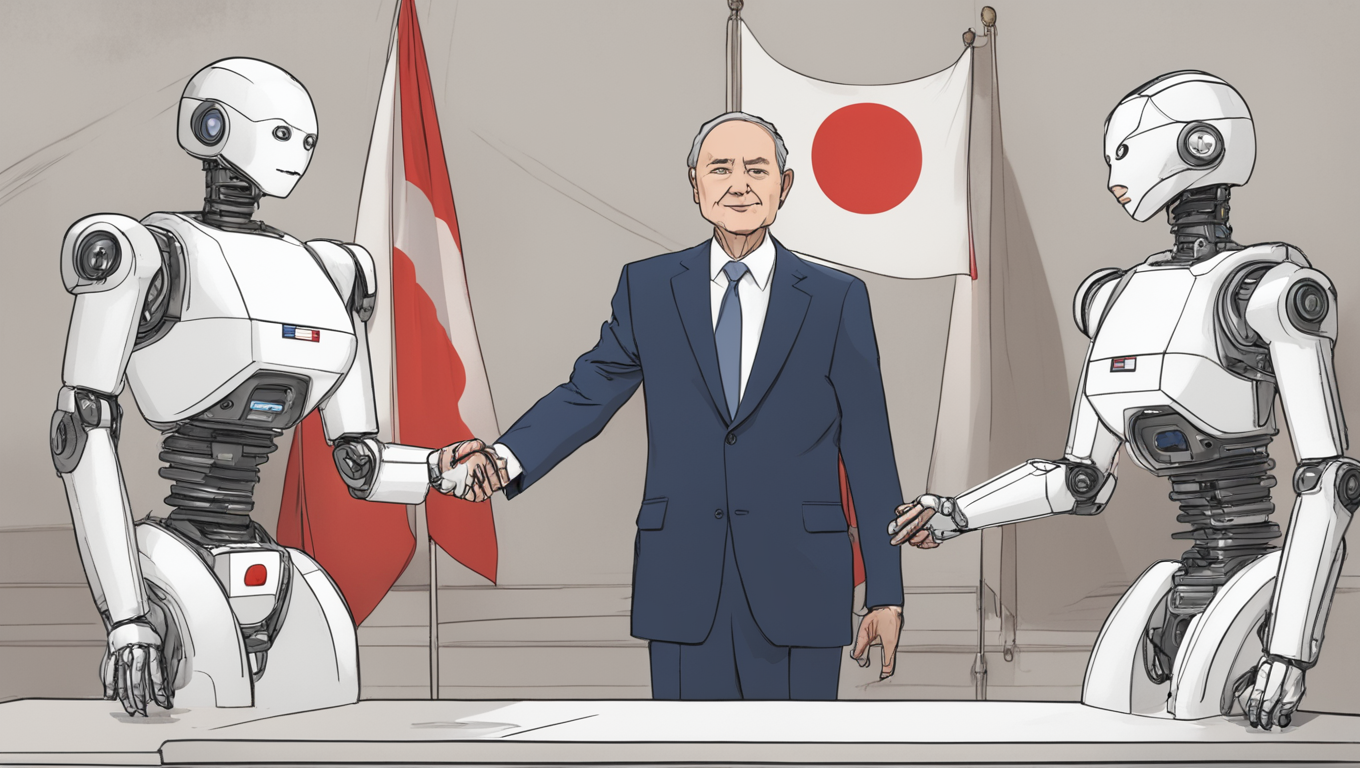Japan’s Proposal for Global AI Control Sparks International Debate
In a move that has sparked international debate, Japan is considering establishing a new framework for dialogue on the responsible use of generative artificial intelligence (AI) technology. The Japanese Prime Minister, Fumio Kishida, is expected to unveil the plan at a ministerial council meeting of the Organization for Economic Cooperation and Development (OECD) in Paris next month.
The framework, tentatively called the “Friends” meeting on AI issues, aims to garner support for the “Hiroshima AI Process,” an initiative launched by the Group of Seven (G7) nations last year. Its main focus is to facilitate discussions on the development of global regulations and norms for AI technologies. Japan intends to take a leading role in international AI rulemaking, advocating for both technological advancement and responsible governance.
This proposal comes at a crucial time when governments and policymakers worldwide are grappling with the challenges posed by the rapid evolution of AI tools, such as ChatGPT. There are growing concerns that the misuse of AI, particularly in the spread of disinformation, could undermine democracy and political stability.
The Hiroshima AI Process was established during the G7 summit chaired by Prime Minister Kishida in May of last year. In December, G7 digital ministers formulated a comprehensive policy framework for the initiative, which was later approved by the G7 leaders. The framework includes guiding principles and a code of conduct for developers and users alike, with the aim of fostering safe, secure, and trustworthy AI systems.
Japan believes that universal rules for AI must be established and supported by both governments and private actors. With this in mind, the country sees the upcoming OECD meeting as an opportune platform to emphasize the significance of the Hiroshima AI Process. The OECD discussions, known for addressing global challenges, provide the ideal setting for highlighting the importance of responsible AI governance.
Prime Minister Kishida has previously spoken about the threats posed by AI-generated fake images, video footage, and audio content. He highlighted the challenges these pose to individuals' ability to distinguish between truth and falsehood, ultimately impacting their political decision-making.
As Japan pushes for global AI control, concerns have been raised about potential consequences. Some argue that centralized regulation could stifle innovation and hinder technological progress. Others emphasize the need for a multilateral approach that respects the diverse perspectives and interests of nations.
The proposal by Japan has ignited a robust international debate on the appropriate regulations and governance required for the future development and deployment of AI technologies. As countries and organizations grapple with the immense potential and risks associated with AI, it is evident that finding a balance between advancement and responsibility will be a complex task.





Use the share button below if you liked it.